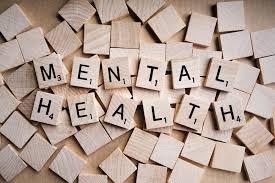A Comprehensive Guide to Mental Health Services
Understanding Mental Health Services
Mental health services are designed to support individuals facing mental health challenges, ranging from mild stress to severe psychiatric disorders. These services include therapy, medication management, crisis intervention, support groups, and digital health tools. The goal is to provide comprehensive care that addresses the psychological, emotional, and social aspects of mental health.
Types of Mental Health Services
- Therapy and Counseling
- Medication Management
- Crisis Intervention
- Support Groups and Peer Support
- Digital Mental Health Tools
- Community-Based Services
- Residential and Inpatient Treatment
Therapy and Counseling
Therapy and counseling are foundational to mental health care. They involve structured sessions with licensed professionals who help individuals understand and manage their thoughts, feelings, and behaviors.
- Cognitive Behavioral Therapy (CBT): Focuses on identifying and changing negative thought patterns and behaviors.
- Dialectical Behavior Therapy (DBT): Combines CBT with mindfulness techniques to manage emotions and improve relationships.
- Psychodynamic Therapy: Delves into the subconscious to unravel hidden motives and untangle how past experiences shape present behaviors and emotions.
- Humanistic Therapy: Focused on fostering self-awareness and enhancing personal autonomy, promoting growth and fulfillment through empathetic exploration.
To access therapy, individuals can seek referrals from primary care providers, use online directories, or contact mental health organizations. Many therapists offer sliding scale fees based on income, and some community health centers provide low-cost or free services.
Medication Management
Medication management utilizes psychiatric medications to address and treat various mental health conditions. This process is overseen by psychiatrists, who are medical doctors specializing in mental health.
- Antidepressants: Used for depression and anxiety disorders.
- Antipsychotics: Vital medications prescribed for managing the complex symptoms of schizophrenia and stabilizing mood in individuals grappling with bipolar disorder.
- Mood Stabilizers: Help manage mood swings, especially in bipolar disorder.
- Anxiolytics: Specifically for anxiety.
Regular consultations with a psychiatrist ensure effective medication management, where dosages can be adjusted, and side effects monitored.
Crisis Intervention
Crisis intervention provides immediate assistance during a mental health crisis, such as severe depression, suicidal thoughts, or a psychotic episode.
- Crisis Hotlines: 24/7 phone lines offering immediate support and referrals.
- Mobile Crisis Teams: Professionals who provide in-person support during a crisis.
- Crisis Stabilization Units: Short-term residential facilities providing intensive care and monitoring.
These services aim to stabilize individuals, provide short-term support, and connect them with ongoing care.
Support Groups and Peer Support
Support groups and peer support offer community and understanding for individuals facing similar challenges.
- Support Groups: Facilitated by professionals or peers, these groups allow members to share experiences and coping strategies.
- Peer Support: One-on-one support from individuals with lived experience of mental health issues.
Organizations like the National Alliance on Mental Illness (NAMI) provide numerous peer-led programs that offer education, support, and advocacy. These mental health services foster a sense of community and shared understanding, which can be incredibly beneficial for recovery and ongoing support.
Digital Mental Health Tools
Digital mental health tools have revolutionized access to mental health care, making it more flexible and affordable.
- Teletherapy: Online therapy sessions via video, phone, or chat, offered by platforms like BetterHelp and Talkspace.
- Mental Health Apps: Apps like Headspace and Calm offer guided meditations, mood tracking, and self-help tools.
- AI Chatbots: Tools like Woebot provide AI-driven cognitive-behavioral therapy and immediate support.
These digital tools are particularly beneficial for those in remote areas or seeking more privacy.
Community-Based Services
Community-based services provide mental health support within the community, often targeting underserved populations.
- Community Mental Health Centers: Offer a range of services, including therapy, medication management, and crisis intervention.
- School-Based Services: Provide mental health support within educational settings, addressing issues like bullying, anxiety, and depression among students.
- Workplace Programs: Employee Assistance Programs (EAPs) offer counseling and support for employees dealing with mental health issues.
These services aim to make mental health care accessible and integrated into everyday environments. Community-based mental health services ensure that support is available close to home and within familiar settings, promoting a more holistic approach to mental wellness.
Residential and Inpatient Treatment
Residential and inpatient treatment provide intensive care for individuals with severe mental health conditions.
- Residential Treatment Centers: Offer long-term care in a structured environment, focusing on comprehensive treatment plans.
- Inpatient Psychiatric Hospitals: Provide short-term, acute care for individuals in crisis, offering stabilization and intensive therapy.
These facilities provide round-the-clock care and are essential for individuals requiring a high level of support. Residential and inpatient mental health services are crucial for those who need intensive and sustained care to recover.
Navigating the Mental Health System
Navigating the mental health system can be challenging, but several steps can simplify the process:
- Identify Your Needs: Determine whether you need therapy, medication, crisis intervention, or another type of service.
- Research Providers: Use online directories, referrals, and reviews to find reputable providers.
- Understand Your Insurance: Check what services are covered by your insurance and any out-of-pocket costs.
- Seek Referrals: Primary care physicians, school counselors, and community organizations can provide referrals to trusted mental health professionals.
- Utilize Hotlines and Helplines: For immediate support and guidance, use resources like the National Suicide Prevention Lifeline or local crisis hotlines.
The Importance of Early Intervention and Prevention
Early intervention and prevention are key to effective mental health care. Identifying and addressing mental health issues early can prevent them from becoming more severe. Schools, workplaces, and community organizations play vital roles in early intervention by providing education, support, and resources to help individuals recognize and address mental health issues promptly.
Conclusion
The landscape of mental health services is diverse and evolving, driven by technological advancements, innovative treatment approaches, and a growing recognition of the importance of holistic and personalized care.

